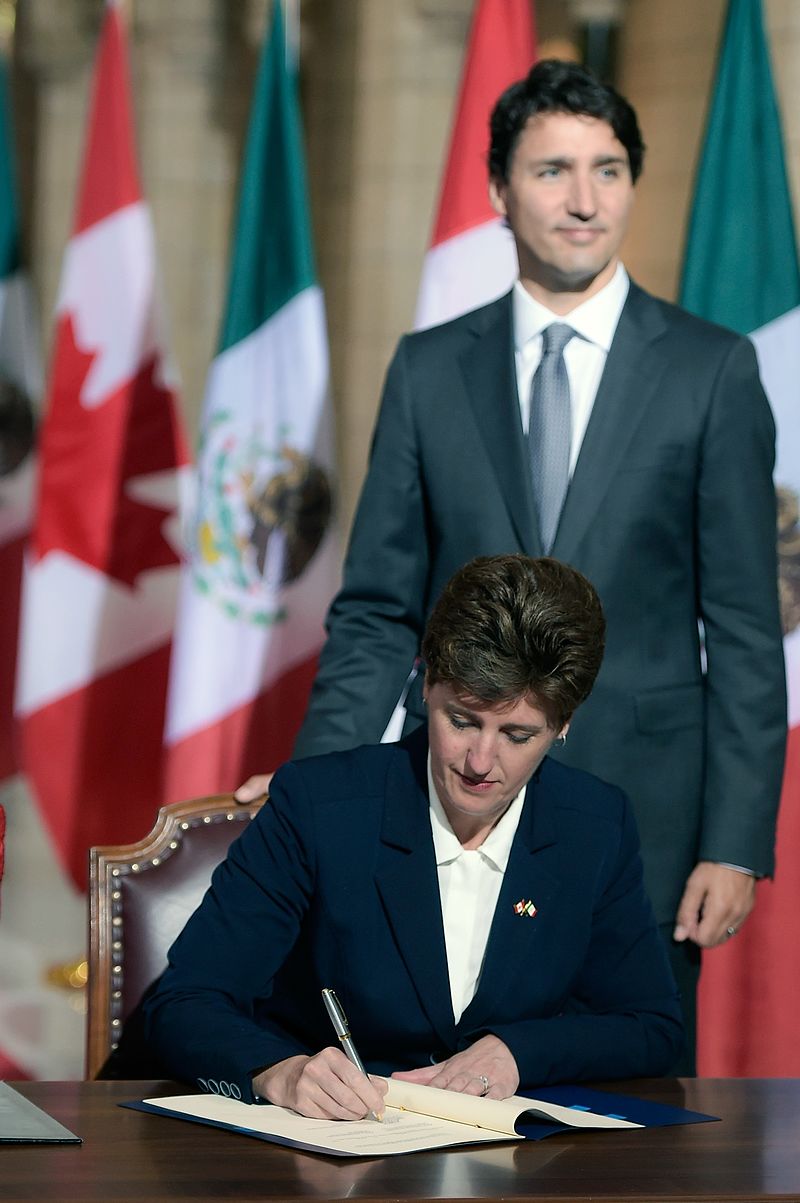
QUEBEC — The Trudeau government announced at the G7 summit that it has raised more than $3.8 billion in an effort with other countries to send the world’s poorest girls to school.
That’s includes a $400-million investment from Canada as part of the overall three-year commitment, and also includes contributions from G7 partners and the World Bank.
International Development Minister Marie-Claude Bibeau told a news conference Saturday that she has visited refugees across the globe, including Iraq and Bangladesh. She said women and girls have suffered unspeakable violence and still live in a vulnerable environment.
“These mothers all share the same dream — they see their kids in school, for them to have hope in their future.”
The money raised exceeds the US$1.3 billion over three years that a coalition of 30 non-governmental organizations had called on Prime Minister Justin Trudeau to raise as part of his chairmanship of the G7 this year. The summit in Quebec’s Charlevoix region wrapped up Saturday afternoon.
The coalition, which includes groups such as Save the Children and World Vision, offered the government widespread public praise on Saturday. But some organizations said they hoped Canada would target its contribution to an area where the United States would be reluctant to fund — sexually reproductive health.
“This would include comprehensive sexuality education, sexual and reproductive health and rights, and the need to address the most difficult barriers for girls who are already pregnant, married, or at risk of early and forced marriage,” said Caroline Riseboro, the president of Plan International Canada.
Diana Sarosi, Oxfam Canada’s policy manager, said addressing the sexual reproductive needs of women and girls is crucial to removing barriers that can keep them from school.
Sarosi said if women and girls “don’t have access to contraceptives and appropriate hygiene products and facilities, cannot afford school fees, are forced into marriage at an early age … they will not be able to attend school or take advantage of their education.”
David Morley, president of UNICEF Canada, said educating girls in crisis is a “smart choice for the future of millions of children” but it is one piece of the larger international development puzzle.
“UNICEF believes that the right to education is as fundamental as the right to food or shelter, and provides girls with the skills they need to break the cycle of crisis and poverty,” he said.
U2 front man Bono, whose anti-poverty organization the One Campaign has been critical of Trudeau recently, offered praise for the initiative.
“It’s not just words, there’s now real money on the table,” he said.
One of Trudeau’s cross-cutting themes for Canada’s G7 chairmanship was gender equality and empowering women and girls.
Trudeau met Saturday morning with his Gender Equality Advisory Council ahead of the announcement.
He spoke of the importance of educating girls in remarks at the start of the meeting, which included his fellow G7 leaders and Christine Lagarde, the managing director of the International Monetary Fund.